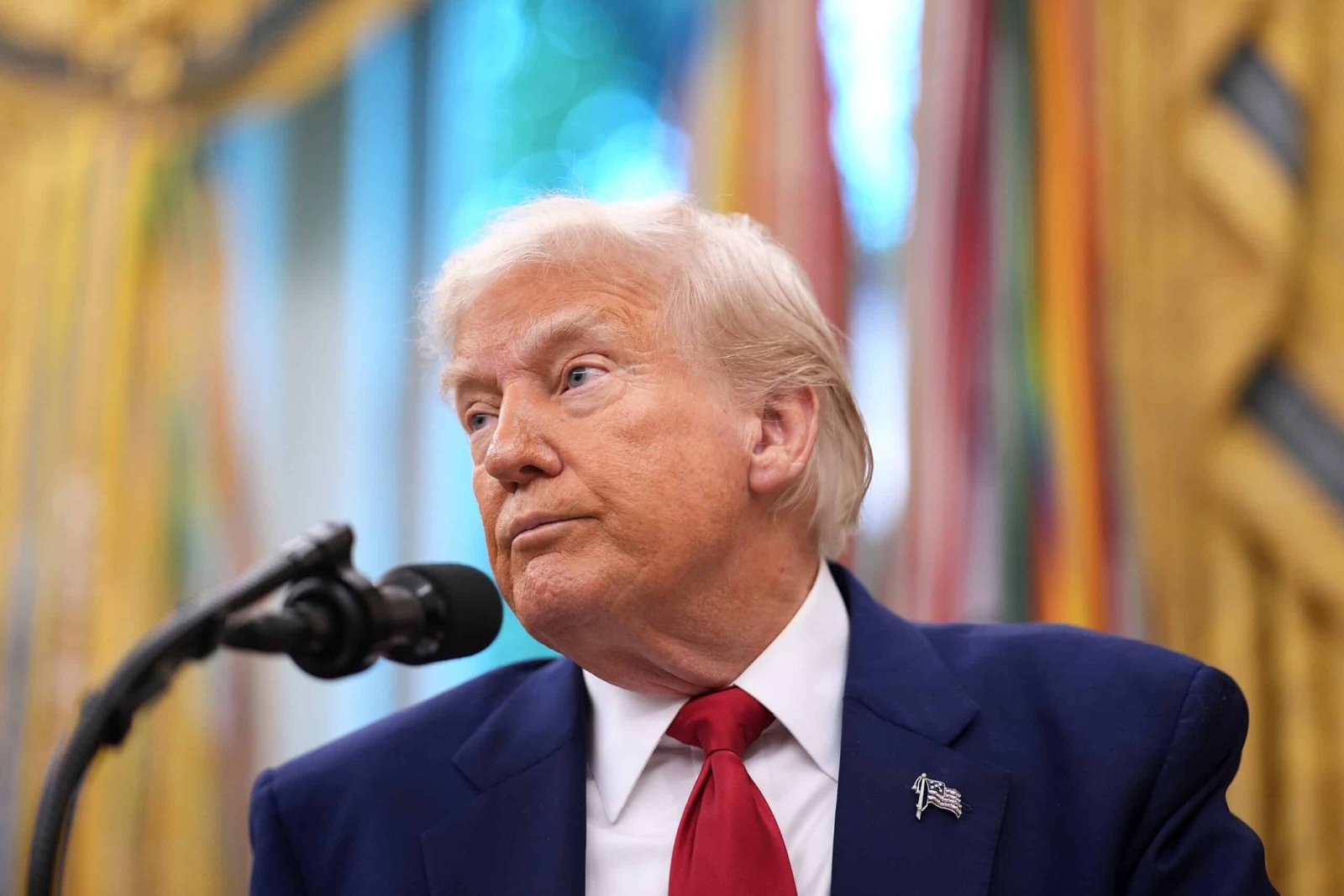In a radical opinion, a panel of three judges of the International Trade Court based in New York caught the global tariffs of President Donald Trump as “contrary to the law.”
The judges discovered that the International Law of Emergency Economic Powers, which Trump used to promulgate his tariffs, does not give him the “unlimited” power to impose rates such as the president in recent months.
“The affirmation of the president of the authority to make rates in the present case, unlimited as it is for any limitation in duration or scope, exceeds any tariff authority delegated to the President under Ieepa. The world and retaliation tariffs are, therefore, ultra vires and contrary to the law,” the judges write.
According to the judges, the Congress, not the president, has the authority to impose tariffs in most circumstances, and Trump’s tariffs do not comply with the limited condition of an “unusual and extraordinary threat” that would allow him to act alone.

President Donald Trump speaks during a ceremony at the ceremony for the interim prosecutor of the United States for Washington, DC Jeanine Pirro, in the Oval Office of the White House, on May 28, 2025 in Washington.
Andrew Harnik/Getty Images
“Due to the express allocation of the constitution of tariff power to Congress, we do not read IEEPA to delegate unlimited tariff authority to the President. Instead, we read the provisions of IEEEPA to impose significant limits on any authority that confers,” said the ruling.
In response to the ruling, the White House spokesman, Kush Desai, evoked the commercial deficit and said: “It is not for not chosen judges to decide how to adequately address a national emergency,” and added that the administration is committed to using “each lever of executive power to address this crisis.”
The International Trade Court issued the decision in two cases, one presented by a group of small businesses and another presented by 12 democratic general prosecutors.
The attorney general of Nevada, Aaron Ford, described the ruling “a victory for the rule of law and for the pockets of the snowy”.
“I am extremely satisfied with the Court’s decision to tear these rates; both were illegal and economically destructive,” he said. “The president had no legal authority to impose these rates, and his illegal actions would have caused billions of dollars of damage to the US economy.”
The Trump administration can appeal the decision before the United States Court of Appeals for the Federal Circuit and then the Supreme Court.
Since Trump announced radical tariffs in more than 50 countries in April, his administration has faced half a dozen demands that challenge the president’s ability to impose tariffs without the approval of Congress.
The lawyers of the small businesses alleged that the International Law of Emergency Economic Powers, which Trump invoked to impose the rates, does not give the president the right to issue “world tariffs worldwide”, and that Trump’s justification for tariffs was not valid.
“His affirmed emergency is a product of his own imagination,” said the demand. “Commercial deficits, which have persisted for decades without causing economic damage, are not an emergency.”
During a hearing earlier this month, a group of three judges, who were appointed by Presidents Obama, Trump and Reagan, pushed a lawyer for small businesses to provide a legal basis to cancel tariffs. While a different court in the 1970s determined that trade with the 1917 enemies law, the law that preceded the International Law of Emergency Economic Powers, gave the President the right to impose rates, no court has weighed if the President can impose unilaterally under the IEEPA.
During a hearing on May 13, Jeffrey Schwab, a lawyer from the Conservative Freedom Justice Center that represents the plaintiffs, argued that Trump’s alleged emergency to justify tariffs is well below what is required according to the law.
“I ask this court to be a referee and call a strike; you ask me, well, where is the Strike area? Is it on the knees or slightly below the knees?” Schwab argued. “I am saying that it is a wild launch and is on the other side of the batter and hits the top, so we do not need to discuss that.”
The ruling marks the first time a federal court issued a decision on the legality of Trump’s tariffs. In May, a federal judge in Florida nominated by Trump suggested that the president has the authority to impose tariffs unilaterally, but chose to transfer the case to the International Trade Court.
-ABC News’ Hannah Demissie contributed to this report.




